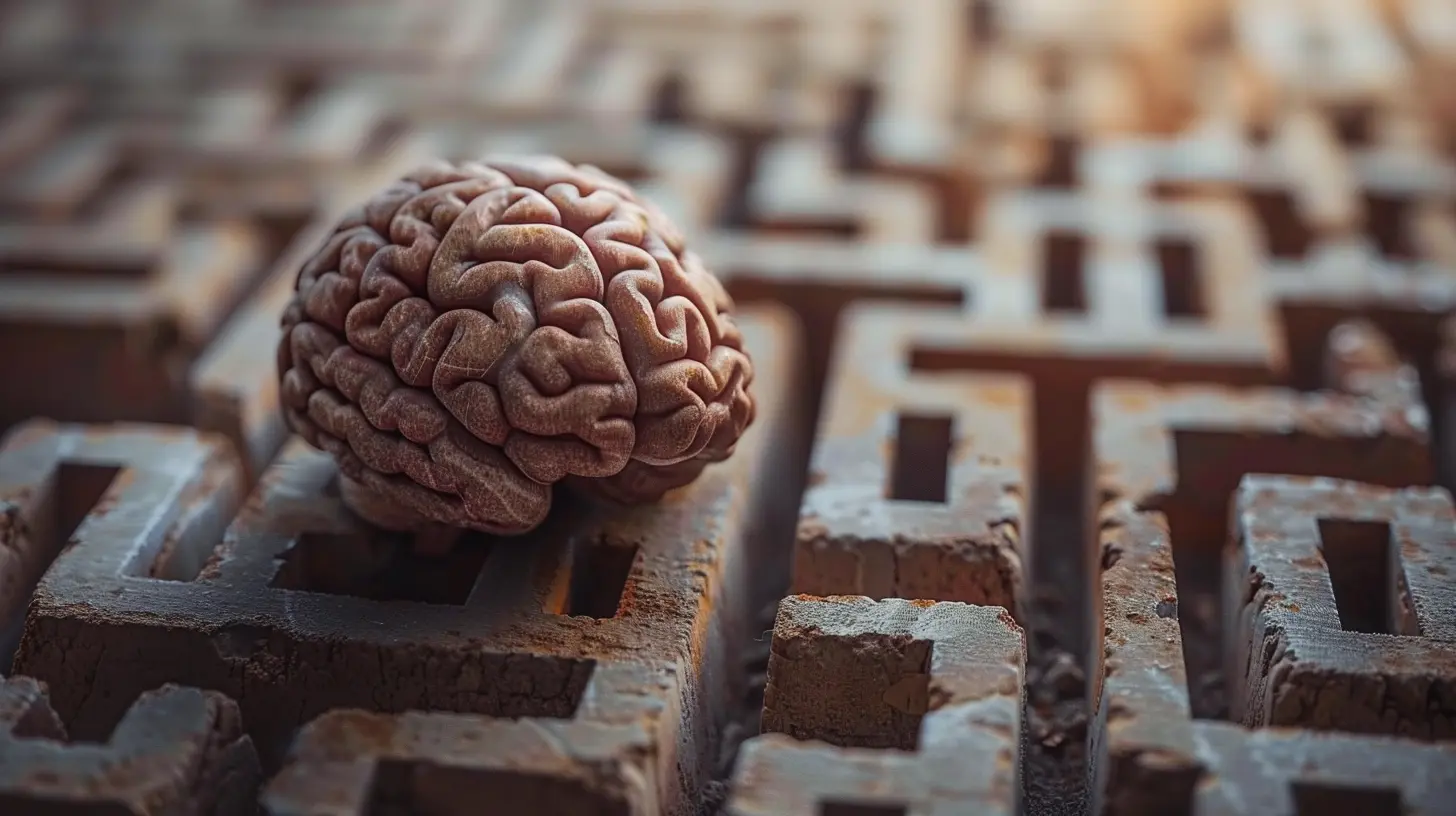Why Metacognition is Key to Effective Problem Solving
21 August 2025
Ever found yourself staring at a math problem or a tough decision for hours, and it just doesn't click? You try a dozen different approaches, but nothing seems to work. Frustrating, right? What if I told you that it’s not about intelligence or how much you know—but about how you think about your thinking?
Welcome to the world of metacognition—a powerful tool that can completely change the way you solve problems. It's not just a buzzword in education or psychology; it’s a game changer in real life, too.
Let’s dive deep into why metacognition is key to effective problem solving—and how you can use it to make better decisions, faster, and with less stress.
What is Metacognition Anyway?
Let’s not get too fancy here.Metacognition simply means “thinking about thinking.” It’s that little voice in your head that says, "Wait a second… is this really the best way to tackle this problem?" It's the ability to reflect on your own thoughts, monitor your understanding, and adjust your strategies when needed.
Think of it like being the coach of your own brain. Your brain’s out there playing the game—running through data, making decisions, doing its thing. Meanwhile, your metacognitive self is on the sidelines, watching the plays, analyzing what’s working and what’s not, shouting out helpful advice.
Cool, right?
The Two Big Parts of Metacognition
To truly understand why it’s so powerful for problem solving, let’s break metacognition down into two main parts:1. Metacognitive Knowledge
This is what you know about how you think. It includes:- Knowing your strengths and weaknesses as a learner.
- Understanding the type of problem you're facing.
- Knowing which strategies tend to work best for you.
2. Metacognitive Regulation
Here’s where the magic happens. This involves:- Planning: What’s the best approach?
- Monitoring: Am I making progress? Is this working?
- Evaluating: How well did I do? What could I do better next time?
The more you build up these skills, the better you’ll get at solving problems—not by pushing harder, but by thinking smarter.
Why Metacognition Matters in Problem Solving
Alright, now that we’ve covered the “what,” let’s get into the “why.”1. It Helps You Step Back and See the Big Picture
Ever get lost in the weeds of a problem? Like when you're so focused on one part of your essay that you forget the entire argument you were trying to make?Metacognition lets you zoom out. It gives you the space to ask, "Wait, what am I really trying to solve here?" That moment of reflection can save you hours of spinning your wheels in the wrong direction.
2. It Prevents Repeating the Same Mistakes
We’ve all been there—trying the same solution over and over, hoping it'll magically work this time.When you’re using metacognition, you’re constantly evaluating and adjusting your approach. You’re not blindly repeating steps; you’re learning from what didn’t work and tweaking your strategy. It’s like being your own GPS—recalculating every time you miss a turn.
3. It Boosts Confidence and Reduces Anxiety
If you’ve ever panicked during a test or froze up during a tough conversation, lack of metacognitive control may be to blame.When you have a plan and can monitor what you're doing, you feel more in control. You know how to pivot if things go south. That self-awareness builds confidence and lowers stress levels. And guess what? Calm minds solve problems better. It's science.
4. It Makes Learning More Efficient
Metacognition helps you focus your energy where it matters most.Instead of wasting time reviewing what you already know, you can target the areas you struggle with. You become a more efficient learner—and problem solver—because you’re directing your attention with intention. No more guessing. Just smart focus.
Real-Life Scenarios Where Metacognition Shines
Let’s ditch the theory for a moment and make this real. Here are a few situations where metacognition can make all the difference:Studying for Exams
You sit down with your notes. Instead of re-reading them passively, ask yourself:- “Do I actually understand this concept?”
- “Can I teach this to someone else?”
That quick switch from passive to active learning is pure metacognition.
Solving a Math Problem
You’re stuck. Instead of repeating the same method:- Pause.
- Ask yourself if there’s another strategy that might work better.
- Consider drawing the problem out or solving a simpler version first.
Boom. You’re not just doing math—you’re managing how you're doing it.
Working on a Group Project
You notice the group isn’t making progress. A metacognitive thinker might ask:- “What’s blocking us?”
- “Are we all clear on the problem we're solving?”
- “Is this the most effective way to divide the work?”
Suddenly, you're not just working—you’re thinking about the way you're working.
How to Develop Metacognitive Skills
Okay, so you're sold on the benefits. But how do you actually build these metacognitive muscles?Let’s keep it simple and actionable.
1. Ask the Right Questions
Here’s a cheat sheet of powerful metacognitive questions you can start using today:Before starting a task (Planning):
- What is my goal?
- What do I already know?
- What strategies should I use?
During the task (Monitoring):
- Am I on the right track?
- Do I need to change my strategy?
- What’s confusing me right now?
After the task (Evaluating):
- What worked?
- What didn’t work?
- What would I do differently next time?
Write them down. Make them your go-to checklist. Think of them like mental Pit Stops.
2. Keep a Learning Journal
Sounds old-school, but jotting down what you learned, what confused you, and how you figured it out can be incredibly eye-opening. It’s a way to track your thinking patterns over time.Bonus: It turns mistakes into goldmines of insight.
3. Embrace Mistakes as Data
Metacognition doesn’t mean you'll never mess up. But it does mean you’ll learn from every mistake.Ask yourself:
- Why didn’t that work?
- What did I assume that turned out to be wrong?
That’s not failure. That’s feedback.
4. Teach Someone Else
If you can explain your thinking to another person clearly, that means you truly understand it. Teaching forces you to organize your thoughts and reflect on your own process. It’s like a workout for your brain coach.Metacognition in Education: The Ultimate Life Skill
Schools are starting to catch on. More and more teachers are integrating metacognitive strategies into their classrooms. Why? Because helping students learn how to think is way more powerful than just dumping information into their heads.Whether you're in middle school, college, or learning as an adult, sharpening your metacognitive skills can make every learning experience deeper and more rewarding.
The world is changing fast. Automation, AI, remote work—you name it. The ability to adapt, learn new things quickly, and solve complex problems is becoming the most valuable skill out there.
Guess what fuels all of that? Yep. Metacognition.
Final Thoughts: Think About Thinking — It Pays Off
Let’s be honest—problem solving can be frustrating. Sometimes it feels like hitting your head against a wall.But metacognition offers a secret weapon. It’s not about working harder; it’s about working smarter. It transforms problem solving from a chaotic scramble into a clear, strategic process.
So next time you’re stuck, don’t just power through. Pause. Reflect on how you’re approaching the problem. Ask yourself the right questions. And listen to that inner coach.
That’s metacognition in action—and it’s the key to unlocking your full problem-solving potential.
all images in this post were generated using AI tools
Category:
Problem SolvingAuthor:

Monica O`Neal
Discussion
rate this article
1 comments
Harvey Hines
Think about thinking—solve like a pro!
August 23, 2025 at 11:55 AM

Monica O`Neal
Thank you! Metacognition truly empowers us to enhance our problem-solving skills by promoting self-awareness and strategic thinking.


